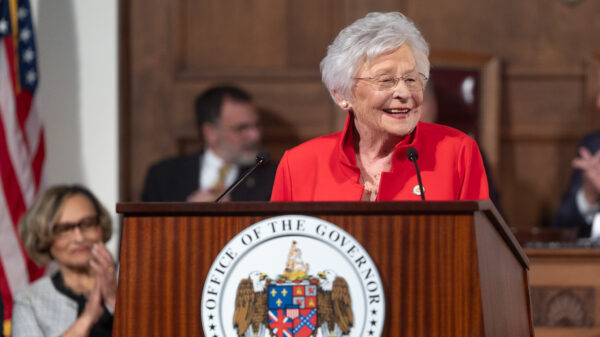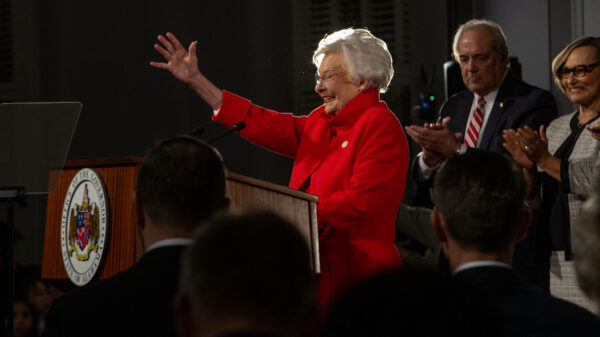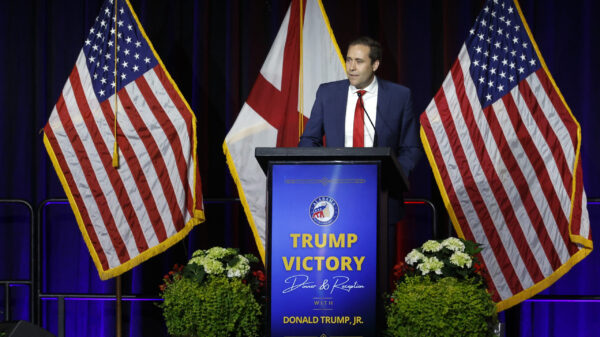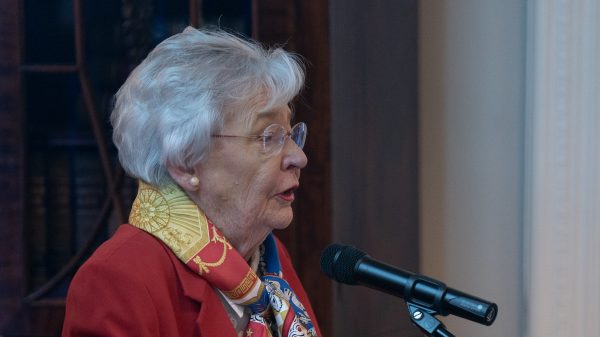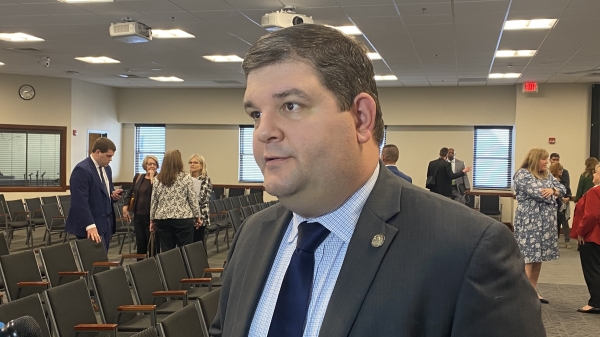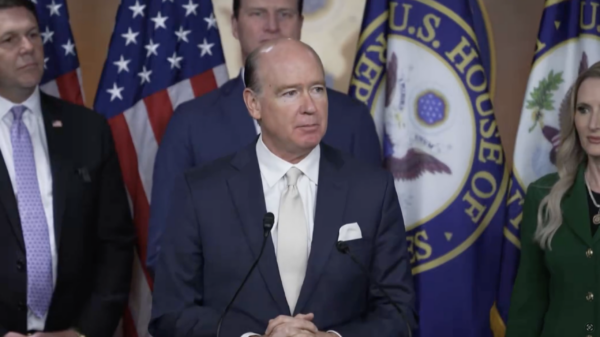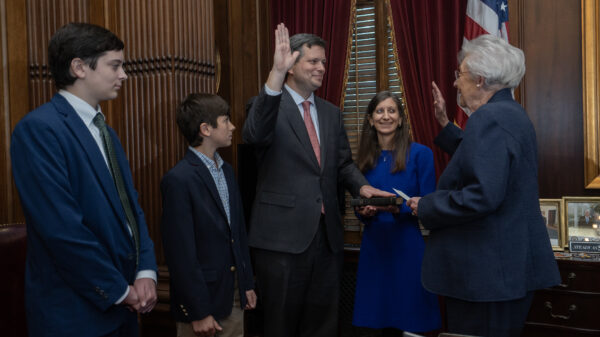Alabama Governor Kay Ivey on Monday signed legislation to get capital to small business owners in rural and impoverished areas of Alabama. House Bill 473 was sponsored by state Rep. Danny Garrett, R-Trussville.
One of the most difficult parts of operating a small business is obtaining access to capital. That is even more difficult if your small business is in a very rural or impoverished area of the state of Alabama, particularly if you are a minority or in agribusiness.
Garrett explained that HB473 — titled the Alabama Rural, Agribusiness, and Opportunity Zone Jobs Act — creates a fund for those struggling business owners to access the capital that they need.
Garrett explained that the funds would come from $25 million in American Rescue Act dollars that the state will receive in the coming year to help small businesses. Growth funds would be allowed to access that capital, provided that they put up at least a one-to-one match of their own dollars, to invest in a qualifying Alabama business.
Garrett explained that investment growth fund managers would match those dollars on a one-to-one basis to create a $50 million source of capital for qualifying businesses. No state dollars would be used in this.
Garrett said that the business receiving the funds must be a qualified small business in Alabama that has tried and failed to obtain capital from conventional lenders. The participating growth fund could be from within Alabama or from out of state.
Garrett said that 50 percent of the money in the fund has to be provided for businesses in counties with less than 50,000 in population according to the 2020 Census and 25 percent has to be in a qualified opportunity zone.
Qualifying businesses must have fewer than 200 employees and must be located in a designated growth zone.
According to the legislation, qualifying jobs created or retained under the act have to pay at least 110 percent of the average wage in that county and requires at least 35 hours of work per week or any other period of time generally accepted by custom, industry, or practice as full-time employment.
Garret said that at least 25 percent of the loans from the fund have to go to minority-owned businesses.
The legislation defines a minority-owned business as a “business that is more than 50 percent owned by one or more individuals of African-American, Asian, or Hispanic origin.”
A growth fund seeking to tap this funding source must present “a business plan that includes a revenue impact assessment projecting state and local tax revenue, as well as reduced state expenditures, to be generated by the applicant’s proposed growth investments prepared by a nationally recognized third-party independent economic forecasting firm using a dynamic economic forecasting model that analyzes the applicant’s business plan over the 10 years following the date the application is submitted to the department.”
The applicant also has to present “a letter of credit issued to the applicant from a depository institution equal to at least 50 percent of the amount of investment authority requested or similar evidence that the applicant has secured matching capital equal to such amount,” as well as, “a nonrefundable application fee of twenty thousand dollars ($20,000) payable to the department.”
“Within 30 days after receipt of a completed application containing the information set forth in subsection (b), the department shall grant or deny the application.”
Participating growth funds must have a minimum of $50 million in assets managed. That was originally $100 million, but the Senate lowered the threshold so that more funds would be able to participate in the program.
“At least 50 percent of growth investments shall be made in agribusiness or minority-owned businesses and at least 75 percent of growth investments shall be made in rural areas or opportunity zones.”
The 2021 Legislative Session ended May 17. The regular session is limited to just 30 legislative days by the Alabama Constitution of 1901. The next regular session will be in January. There will be a special session late in the year or early January to deal with redistricting.
A special session is possible this summer or early fall to pass a bond issue to build new prisons. The gambling special interests are pressuring the governor to call a special session to address their desires for a constitutional amendment allowing casinos.






